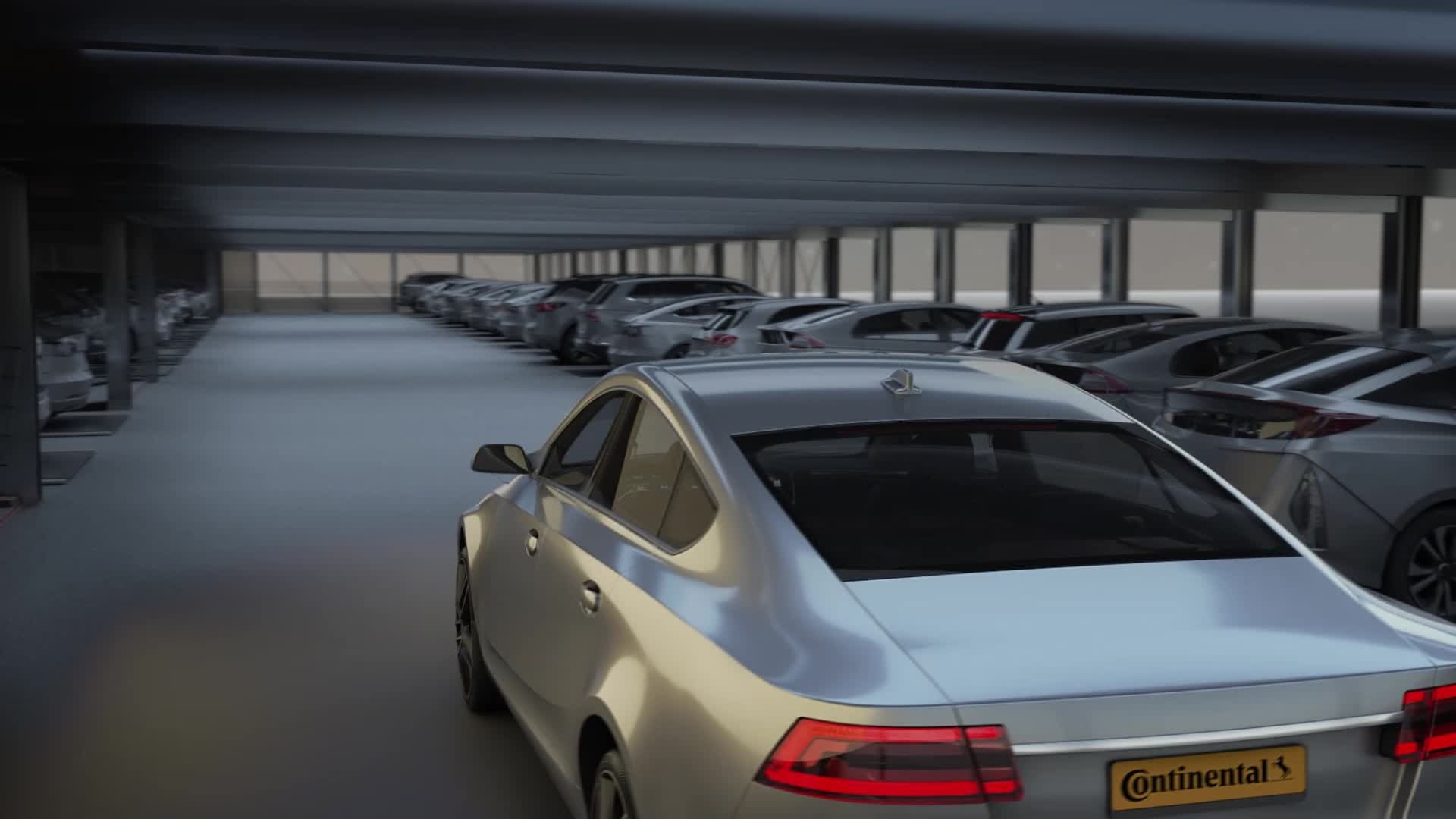
[ad_1]
Vehicles parking themselves is nothing new. Toyota introduced the first commercially available auto-steering application with the Japanese-market 2003 Prius, we covered Ford’s system with similar capability back in 2012 (which is now relatively common across the industry), and Tesla introduced its Smart Summon in 2019 to autonomously retrieve a vehicle from its parking spot. And who could forget Hyundai’s Smaht Pahk?
Those systems can be helpful, sure, but the real dream is to walk into a parking garage, step out of the vehicle, and send it off to find a spot so you can get to your movie, sporting event, or favorite shop faster and without the hassle. The dream would be even sweeter if the car buyer didn’t have to pay for all the required on-board cameras, radar sensors, and beefy ECUs. Mister Sandman—er, Continental—is working to make it happen.
Conti is already responsible for supplying some automakers with the hardware necessary for modern driver assists, so developing a Level 4 autonomous valet parking system makes sense for the 150-year-old company. Though the supplier is also developing a more traditional vehicle-based solution, the more inventive alternative integrates all the required tech into the infrastructure.
Because most new vehicles already have the capability to accelerate, brake, and steer themselves, they already have the basic capabilities needed for autonomous valet parking. All they need is advanced AI-driven software, in this case supplied by Conti partner Kopernikus Automotive, along with a series of cameras and QR codes throughout the area to find a space and avoid potential hazards. Of course, the automaker would also need to allow such a system to bypass internal limitations like starting or driving a vehicle without a nut behind the wheel.
The benefit here is twofold. Automakers can save money and manpower by implementing an infrastructural solution at manufacturing facilities by enabling vehicles to shuttle themselves from the end of the production line to a shipping lot.
Garages also have an incentive to install Conti’s infrastructure-based autonomous valet parking. Drivers may be willing to pay more to store their vehicle in a facility where they don’t have to deal with the pesky parking bit themselves, plus with no risk of silly careless humans opening a door into an adjacent vehicle, more cars can fit in the same amount of garage space.
Continental also sees the smart garage tech opening up new conveniences for drivers (and profit streams for garages). With autonomous valet, users could open up an app to request that their vehicle be fully charged and cleaned when it returns to them, with help from garage-installed autonomous robotic-arm chargers and car washes. In a country with still-limited charging infrastructure—and way too many dusty parking garages—a solution like this could change the whole industry.
[ad_2]
Source link




